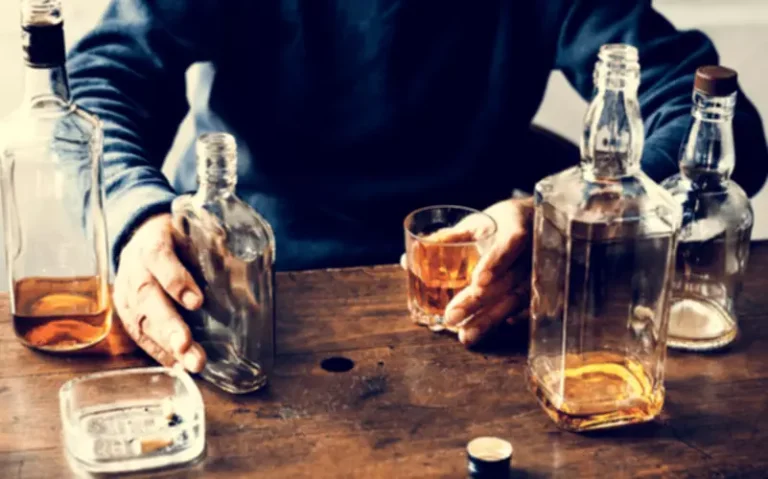Why Does Drinking Release the Rage? Understand Alcohol-Related Anger and Aggression

Sometimes the shame of facing the things they did while intoxicated causes them to start drinking again, proliferating a vicious circle of substance use and abuse. Alcohol effects the prefrontal cortex of the brain, the region that moderates things like decision-making. What this means is that people whose personalities make them naturally quicker to become angry than others are even more likely to lose control under the influence of alcohol. But in real life, a person who loses control of their emotions when they drink is anything but entertaining. People spend years in therapy and in treatment for issues of their own that are caused by the consequences of this behavior.
- While some may believe displaying anger after drinking is a sign of suppressing anger when sober, new studies show a link between alcohol and emotions of anger, stress, and depression.
- We can create an environment of emotional well-being and resilience by promoting awareness, exploring healthier coping strategies, and fostering support networks.
- He witnessed firsthand how an evidence-based approach coupled with Spiritual Psychology saved Betsy and enabled her to gain control of her life.
Specialty Programs

By understanding the function of these behaviors, individuals can learn alternative coping mechanisms and stress management techniques to address underlying emotional distress effectively. Before exploring the common emotional experiences while drinking, it’s essential to understand how anger and alcohol perception are intertwined. Alcohol consumption significantly increases the likelihood of expressing anger while intoxicated. As alcohol impairs cognitive functions and inhibitions, individuals may experience a diminished ability to rationalize or diffuse feelings of anger. Beyond its physiological effects, the association between alcohol and anger can affect the mental health of an individual. Many people who have an alternate personality when they drink look back on it clarity when they sober up.
How to Seek Help for Co-Occurring Anger and Alcohol Addiction
- Disulfiram (Antabuse), acamprosate (Campral), and naltrexone are the most common medications used to treat AUD.
- The most commonly used and recognized MAT for alcohol use disorders is naltrexone, taken orally or as an injection.
- This is not to say that alcohol causes aggression, or serves to makes someone angry, in and of itself; however, it may be a contributing factor when it comes to difficulties controlling these emotions.
It has also been reported that both the males and females are equally aggressive when verbal aggression is at play (Archer, 2004; Björkqvist, 2017). In an experiment conducted by Giancola and Zeichner (1995), 128 participants (64 males and 64 females) performed a task where they gave an electric shock anger and alcoholism to the fictional opponents, which included both the genders. The participants were assigned to either alcohol, a placebo, or a sober group. The researchers found that the intensity and duration of shock were higher in the men from the alcohol group, while only shock duration was increased in women.
Modeling Alcohol-Aggression Etiology: Instigating, Impelling, and Inhibiting Factors

It’s crucial to recognize that the emotional impact of alcohol varies significantly from person to person and can be influenced by various factors such as individual predispositions, external stressors, and social contexts. For individuals already dealing with anger issues, alcohol can intensify and magnify these underlying challenges. This amplification occurs due to alcohol’s impact on the brain’s neural pathways, particularly those involved in emotional regulation. Furthermore, compromised decision-making abilities and weakened impulse control can exacerbate aggressive behaviors, amplifying the expression of anger in alcohol-influenced situations. For numerous individuals, alcohol serves as a coping mechanism, offering temporary respite from underlying stressors, anxieties, or unresolved traumas.
Sign up for periodic Recovery Coaching tools and updates delivered to your inbox.

Nevertheless, it is important to remember to support your ongoing recovery and long-term sobriety; learning how to identify, deal with, and control anger is paramount. Understanding the relationship between alcoholism and anger is essential to continued success, and an alcohol rehab in Florida can help you with that. It only becomes unhealthy when it goes unresolved and when it isn’t addressed. While anger isn’t necessarily a side effect of alcoholism, drinking to “dull” or “numb” the anger (or other emotions) isn’t just ineffective – it could be a sign that it’s time to seek help for some deeper issues. The stress-reducing effects of alcohol often make people believe there are no real consequences for their actions, which leads to confrontations, fights, or displays of aggression.
Some individuals may consider alcohol’s effects to be more of a stimulant, meaning that after a drink or two, they loosen up and are ready to go out, socialize, or relax. While this effect may be true for some individuals, after a few drinks, the depressant effects of alcohol start to make their appearance. If you or someone you know find yourself displaying these tendencies after drinking or while drinking, it is likely a sign that you are suffering anger issues as a result of alcohol and should seek help.
Whether you want to optimize your health, improve your relationships, manage mental health challenges, or get sober — it’s a discovery process. Figuring out what works and what doesn’t often comes from trial and error. Acamprosate (Campral), usually taken three times a day, is another medication for AUD. Extensive evidence proves Naltrexone and acamprosate reduce heavy drinking and promote abstinence. Disulfiram (Antabuse) is another medication FDA-approved to treat alcohol use disorder, but it is used very infrequently.

The Dangers of Anger in Sobriety
Alcohol has a closer association with aggressive behavior than any other mind-altering substance, according to the World Health Organization (WHO). Violent behavior may occur in as much as 50% of people with alcohol use disorder (AUD). The master’s level clinicians and therapists at Serenity Lane dedicate their lives to offering evidence-based, compassionate, and comprehensive addiction treatment because we know anyone can recover. We don’t want you to face uncontrolled anger or alcohol use disorder alone – we want to help. In other words, long-term anger management is borderline impossible when someone is drinking regularly or in excess.
- While drinking alcohol isn’t the sole reason for assault, it plays a substantial role in whether someone commits a violent crime.
- Executive function is a term used to describe the processesin the brain that control functions like working memory, reasoning,attention, planning and inhibition of impulses.
- Once you’ve immersed yourself by using your senses, you’ll be more likely to return to the situation with a clear head.
- Alcohol use and anger can both be treated using psychotherapy approaches rooted in cognitive behavioral therapy (CBT).
Recognizing anger as a complex emotion intertwined with sobriety can empower individuals to seek healthier outlets and coping strategies. However, this relationship is a bit more turbulent when it comes to recovering alcoholics and anger. In general, expressing appropriate emotions is a skill that addicts struggle with early in their recovery.

Deixe um comentário